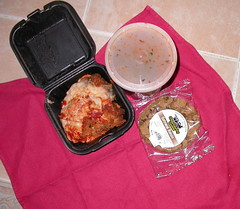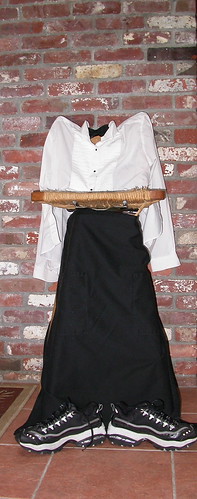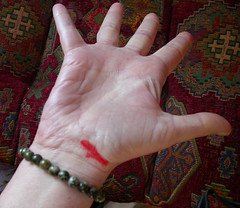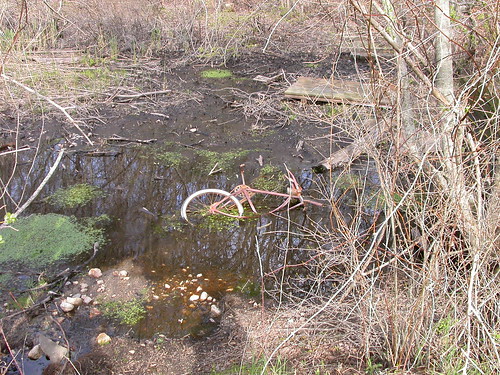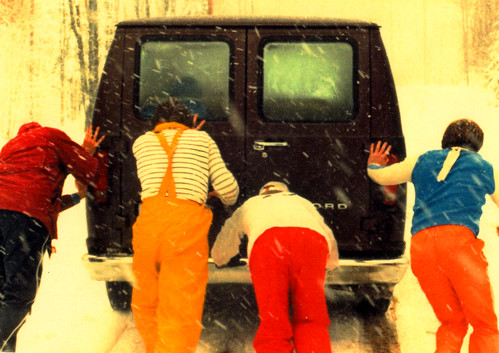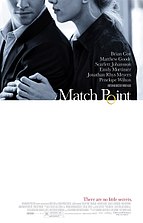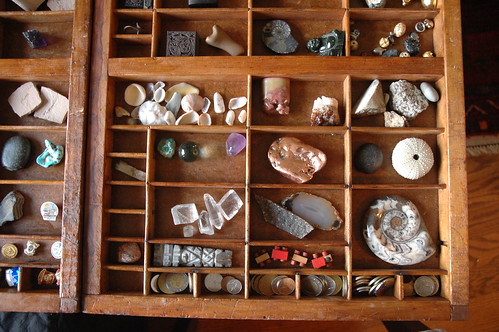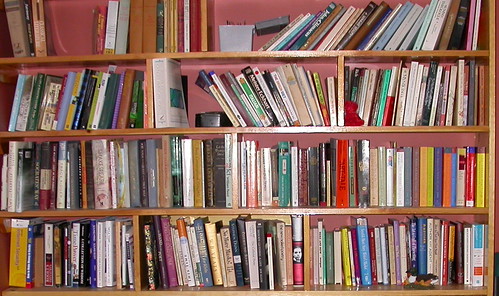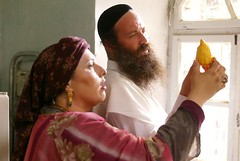
USHPIZIN
Originally uploaded by Ben-Zion.
We've had a couple of DVDs from Netflix sitting around the house for a couple of weeks. After a while, an unwatched movie becomes like a job.
"Are we going to watch this thing or not?" Ted will say.
"Maybe tomorrow. I've got some reading to do tonight," I reply. (Ever the procrastinator when it comes to anything that begins to resemble work.)
So last night it was do or die. We were either going to check these films out, or we were going to admit defeat and send them back in their cheery red jackets, unwatched.
I read the description of the first, Ushpizin: ...a week in the life of two recently converted orthodox Jews preparing for a lavish Sukkot feast...
"Doesn't sound like much of a plot." Ted winced. "Did you order that?"(Blaming each other for poor movie choices is one of the sports we've developed in our marriage.)
"The reviews were really good," I said defensively, though I had added the film to my list so long ago, I could no longer remember why.
Ted wasn't buying. "What about the other one?"
The second film was French, subtitled, and sounded slightly more promising. We popped it in the DVD player, but within twenty minutes, it was playing to an empty theatre. Ted had drifted off to his computer; I was doing laundry.
"Looks like you're not too interested in the movie either..." he called from his office. Since this clunker was another one of my choices, it was two points for him. I could practically hear the swish.
"It's interesting, but I'm not in the mood," I said in lame defense, though I already knew I'd lost the game. "Maybe we should try ten minutes of the other one. If it's no good, I'll send them both back tomorrow."
"Five." Ted ambled reluctantly toward the couch.
As it turned out, five minutes was all it took for us to be mesmerized by Shuli Rand's terrific portrayal of Moshe, and his obvious passion for the subject. (He wrote the screenplay as well.) Ushpizin is a film about religious faith--not the dogmatic, self-righteous kind, but the sort that is all about passion for God.
Like any intoxicated lover, Moshe thinks about his deity constantly; he and his wife, Malli, pray incessantly from their whole being. Whether in the kitchen or on the street, they sing to God, clap their hands, and raise their voices in love or grief as they struggle to make sense of their lives--and to do the right thing.
Having no money to celebrate the Sukkot, they pray that they will be given what they need to honor God properly on the holiday. And they are. Not only do they receive a gift large enough to cover an eleborate feast, they are surprised by unexpected guests.
Serving guests on a holiday is considered a great grace, so Moshe and Malli rejoice, determined to treat their Ushpizin or "holy visitors" as such. The only problem is that their Yussef and Eliyau are two escaped convicts, bent on exploiting their hosts.
The film (and beyond it, life) asks the question: Are believers like Moshe and Malli, who serve their vulgar and obstreperous guests with joy and generosity the fools and suckers Yussef and Eliyau believe them to be? Or are they full of holy wisdom?
The two oily guests eat the impoverished couple out of house and home, demand the last of their money, and ultimately disrupt both the Hasidic neighborhood and the marriage.
When Moshe turns to his rabbi for advice, he is told, "No matter what, don't get angry."
For the most part, Moshe, though eminently human, does not. He weeps and struggles and clenches his fist, but he continues to pray and to love. The reward he receives in the end seems contrived--and unnecessary.
For me, the central truth of the film was that Moshe and Malli had something that no one, not even a pair of determined con men, could take away from them. It was a gift so rare and beautiful that just watching it could make you weep.
What greater reward could they hope to gain?

